Machine Learning Refined
Providing a unique approach to machine learning, this text contains fresh and intuitive, yet rigorous, descriptions of all fundamental concepts necessary to conduct research, build products, tinker, and play. By prioritizing geometric intuition, algorithmic thinking, and practical real-world applications in disciplines including computer vision, natural language processing, economics, neuroscience, recommender systems, physics, and biology, this text provides readers with both a lucid understanding of foundational material as well as the practical tools needed to solve real-world problems. With in-depth Python and MATLAB/OCTAVE-based computational exercises and a complete treatment of cutting edge numerical optimization techniques, this is an essential resource for students and an ideal reference for researchers and practitioners working in machine learning, computer science, electrical engineering, signal processing, and numerical optimization.
Key features:
- A presentation built on lucid geometric intuition
- A unique treatment of state-of-the-art numerical optimization techniques
- A fused introduction to logistic regression and support vector machines
- Inclusion of feature design and learning as major topics
- An unparalleled presentation of advanced topics through the lens of function approximation
- A refined description of deep neural networks and kernel methods
Jeremy Watt received his PhD in Computer Science and Electrical Engineering from Northwestern University. His research interests lie in machine learning and computer vision, as well as numerical optimization.
Reza Borhani received his PhD in Computer Science and Electrical Engineering from Northwestern University. His research interests lie in the design and analysis of algorithms for problems in machine learning and computer vision.
Aggelos K. Katsaggelos is a professor and holder of the Joseph Cummings chair in the Department of Electrical Engineering and Computer Science at Northwestern University, where he also heads the Image and Video Processing Laboratory.
Machine Learning Refined
Foundations, Algorithms, and Applications
JEREMY WATT, REZA BORHANI, AND AGGELOS K. KATSAGGELOS
Northwestern University

University Printing House, Cambridge CB2 8BS, United Kingdom
Cambridge University Press is part of the University of Cambridge.
It furthers the Universitys mission by disseminating knowledge in the pursuit of
education, learning and research at the highest international levels of excellence.
www.cambridge.org
Information on this title: www.cambridge.org/9781107123526
Cambridge University Press 2016
This publication is in copyright. Subject to statutory exception
and to the provisions of relevant collective licensing agreements,
no reproduction of any part may take place without the written
permission of Cambridge University Press.
First published 2016
Printed in the United Kingdom by Clays, St Ives plc
A catalog record for this publication is available from the British Library
Library of Congress Cataloging in Publication data
Names: Watt, Jeremy, author. | Borhani, Reza. | Katsaggelos, Aggelos Konstantinos, 1956-
Title: Machine learning refined : foundations, algorithms, and applications / Jeremy Watt, Reza Borhani, Aggelos Katsaggelos.
Description: New York : Cambridge University Press, 2016.
Identifiers: LCCN 2015041122

ISBN 9781107123526 (hardback)
Subjects: LCSH: Machine learning.
Classification: LCC Q325.5 .W38 2016 | DDC 006.3/1dc23
LC record available at http://lccn.loc.gov/2015041122
ISBN 978-1-107-12352-6 Hardback
Additional resources for this publication at www.cambridge.org/watt
Cambridge University Press has no responsibility for the persistence or accuracy of URLs for external or third-party internet websites referred to in this publication, and does not guarantee that any content on such websites is, or will remain, accurate or appropriate.
Contents
Preface
In the last decade the user base of machine learning has grown dramatically. From a relatively small circle in computer science, engineering, and mathematics departments the users of machine learning now include students and researchers from every corner of the academic universe, as well as members of industry, data scientists, entrepreneurs, and machine learning enthusiasts. The book before you is the result of a complete tearing down of the standard curriculum of machine learning into its most basic components, and a curated reassembly of those pieces (painstakingly polished and organized) that we feel will most benefit this broadening audience of learners. It contains fresh and intuitive yet rigorous descriptions of the most fundamental concepts necessary to conduct research, build products, tinker, and play.
Intended audience and book pedagogy
This book was written for readers interested in understanding the core concepts of machine learning from first principles to practical implementation. To make full use of the text one only needs a basic understanding of linear algebra and calculus (i.e., vector and matrix operations as well as the ability to compute the gradient and Hessian of a multivariate function), plus some prior exposure to fundamental concepts of computer programming (i.e., conditional and looping structures). It was written for first time learners of the subject, as well as for more knowledgeable readers who yearn for a more intuitive and serviceable treatment than what is currently available today.
To this end, throughout the text, in describing the fundamentals of each concept, we defer the use of probabilistic, statistical, and neurological views of the material in favor of a fresh and consistent geometric perspective. We believe that this not only permits a more intuitive understanding of many core concepts, but helps establish revealing connections between ideas often regarded as fundamentally distinct (e.g., the logistic regression and support vector machine classifiers, kernels, and feed-forward neural networks). We also place significant emphasis on the design and implementation of algorithms, and include many coding exercises for the reader to practice at the end of each chapter. This is because we strongly believe that the bulk of learning this subject takes place when learners get their hands dirty and code things up for themselves. In short, with this text we have aimed to create a learning experience for the reader where intuitive leaps precede intellectual ones and are tempered by their application.
What this book is about
The core concepts of our treatment of machine learning can be broadly summarized in four categories. Predictive learning , the first of these categories, comprises two kinds of tasks where we aim to either predict a continuous valued phenomenon (like the future location of a celestial body), or distinguish between distinct kinds of things (like different faces in an image). The second core concept, feature design , refers to a broad set of engineering and mathematical tools which are crucial to the successful performance of predictive learning models in practice. Throughout the text we will see that features are generated along a spectrum based on the level of our own understanding of a dataset. The third major concept, function approximation , is employed when we know too little about a dataset to produce proper features ourselves (and therefore must learn them strictly from the data itself). The final category, numerical optimization , powers the first three and is the engine that makes machine learning run in practice.

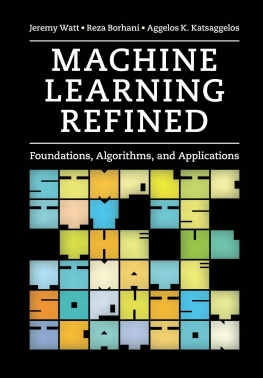
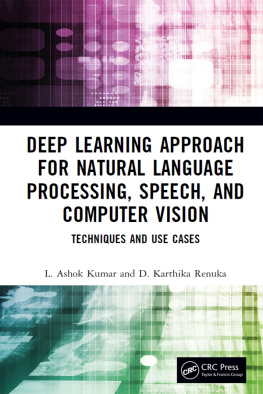
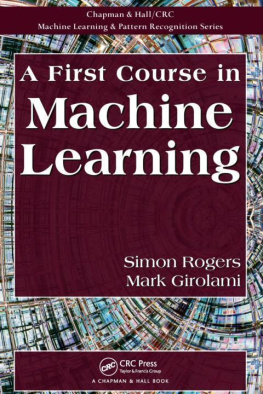
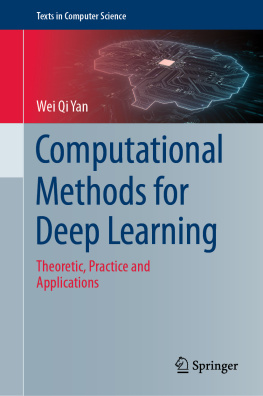
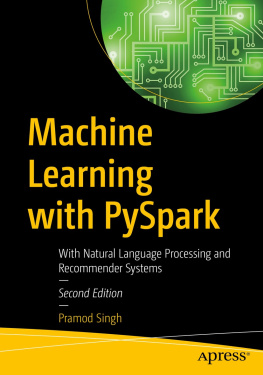


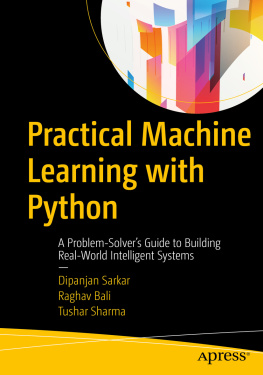
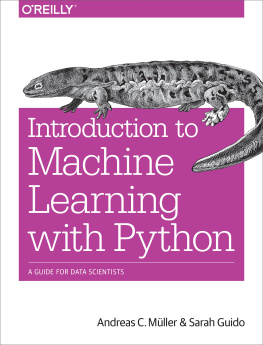


 ISBN 9781107123526 (hardback)
ISBN 9781107123526 (hardback)